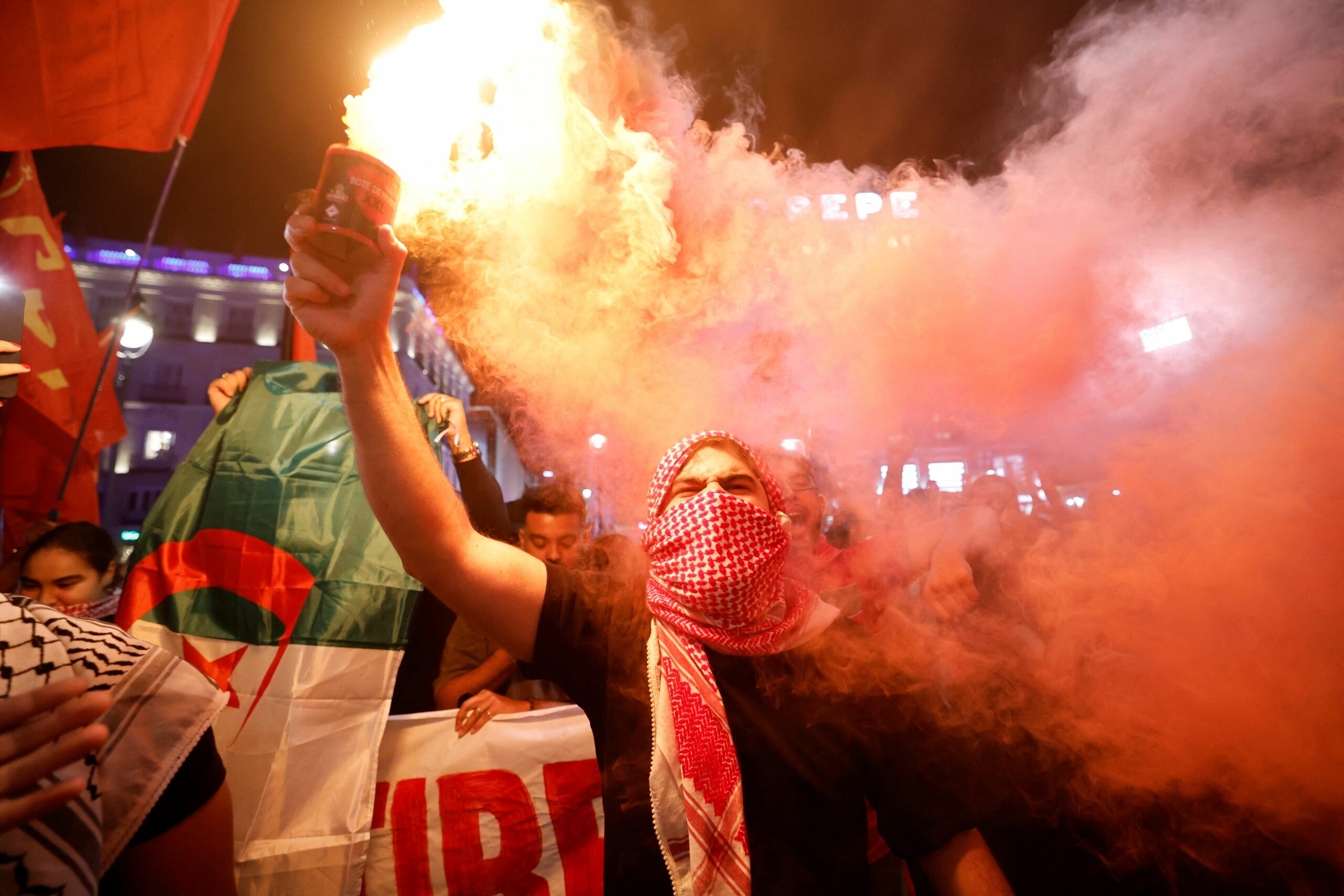Conflict between Israel and Gaza militants is very likely to disrupt operations and heighten protest and terrorism risks in the Middle East and North Africa (MENA) region.
This assessment was issued to clients of Dragonfly’s Security Intelligence & Analysis Service (SIAS) on 09 October 2023.
- There will very probably be large – but overwhelmingly peaceful – pro-Palestinian demonstrations in cities across the MENA region in the coming days
- There have already been pro-Palestine gatherings in countries including Tunisia and Lebanon
- But the most probable form of any retaliatory terrorist attack would be similar to a shooting in Egypt this weekend in which a policeman killed two Israeli tourists
Hamas launched unprecedented attacks on southern Israel on 7 October. Against the backdrop of what will almost certainly be sustained fighting over the coming weeks, we anticipate frequent and large-scale pro-Hamas and pro-Palestine demonstrations in cities across the MENA region. But with most regional governments supportive of those sentiments, we strongly doubt that these would result in much disorder, let alone unrest.
Terrorist groups across the region will probably seek to capitalise on recent events. This primarily involves making threatening statements towards Israel and the US – both Al-Qaeda in the Arabian Peninsula (AQAP) and an Iraq-based Shia militia have already done so. The conflict will probably make radicalised individuals particularly motivated to engage in acts of violence. But apart from in Iraq, where groups are already highly capable and likely to target US interests with rocket and armed drone launches, the ability of terrorist groups to quickly plan and execute large-scale retaliatory attacks against Israeli or Western interests appears fairly limited.
Large solidarity protests very likely across the region
Planned and spontaneous gatherings in support of Palestinians are probable over the coming days, notably in Algeria, Iran, Iraq, Jordan, Kuwait, Lebanon, Libya, Morocco, Syria, Tunisia, Turkiye and Yemen. So far the only specific planned call for protests we have identified is in Iraq. The Iraqi Shia cleric-come-politician Moqtada Al-Sadr has called for supporters to gather after Friday prayers on 13 October. Those countries are, in our analysis, most susceptible because they host large Palestinian communities, their governments are overtly pro-Palestine and/or there are influential non-state actors (such as trade unions in Tunisia) capable of mobilising over this.
Overland travel disruption during these gatherings is highly likely. This is because between several hundred and many thousands of people will probably attend, based on comparable events. Gatherings have tended to be largest in Iran, Iraq and Turkiye. Attendance – and so disruption – will probably be greatest on the next few Fridays, 13 and 20 October. So too would be any events organised in response to reports (irrespective of their accuracy) of atrocities, particularly involving Palestinian children. People across the region are probably following events in Israel and Gaza closely on both mainstream and social media.
Most regional governments will be, at least implicitly, supportive of those rallies and demonstrations, or often explicitly, as in Algeria, Iran and Iraq. This makes widespread violence or instances of confrontations between security forces and participants unlikely. In Gulf countries (apart from Kuwait) and Egypt, where there is limited state tolerance for protest of any kind, any gatherings would involve dozens to a few hundred people. But attendees at unrelated events will probably bring Palestinian flags; footage over the weekend showed Egyptian football fans chanting in solidarity with Palestine.
Terrorism threat elevated
Terrorist groups seem intent on exploiting the violence to incite militants to carry out attacks. For instance, Al-Qaeda in the Arabian Peninsula (AQAP) issued a statement today, 9 October, calling on followers in Egypt, Lebanon, Syria and Jordan to ‘stand up to support [their] brothers’. The Iraq-based Al-Nujaba Shia militia leader said they would attack US interests in Iraq should Washington get directly involved in conflict between Israel and Gaza-based militants. For the most part, the involvement of such groups is likely to be rhetorical.
We have seen little to suggest that there is a specifically heightened threat to Western or other foreign business interests more broadly. Nor do we assess that events in Gaza are likely to lead to a significant change in the overall threat to foreign interests. Across the region, our terrorism threat levels range from low (Oman and Qatar) and moderate (Jordan, Morocco, the UAE and Tunisia) to critical (Iraq and Syria). There are also few groups operating in the region with sufficient capabilities to ramp up operations at short notice that also have easy access to Western, let alone Israeli, interests.
In the event of an attack in response to recent events, militants would be most likely to try to target Israeli interests. Those are most notably present in Bahrain, Egypt, Jordan, Morocco, Tunisia, the UAE and Turkiye. A shooting in Egypt on 8 October shows how the threat would probably play out, in our analysis; a police officer reportedly killed two Israeli tourists and their Egyptian guide in Alexandria. Militants would probably also aim to target Western diplomatic interests. This is particularly true for countries they perceive as being close allies of Israel, such as the US, UK and France.
The most significant exception is Iraq, where Iran-aligned Shia militia groups in particular are highly capable of mounting attacks at short notice. Any attacks on US interests in Iraq would probably involve rocket or drone strikes on its diplomatic and military interests in the country, including its embassy in Baghdad and its military base co-located with the international civilian airport in the capital, and in the Iraqi Kurdish capital as Erbil. Iran has previously suggested that there are Israeli sites in Iraqi Kurdistan.
Image: A protestor bearing keffiyeh holds a flare during a rally in support of Palestinians in Madrid on 9 October 2023 after the Palestinian militant group Hamas launched an attack on Israel. Photo by Oscar Del Pozo/AFP via Getty Images.




